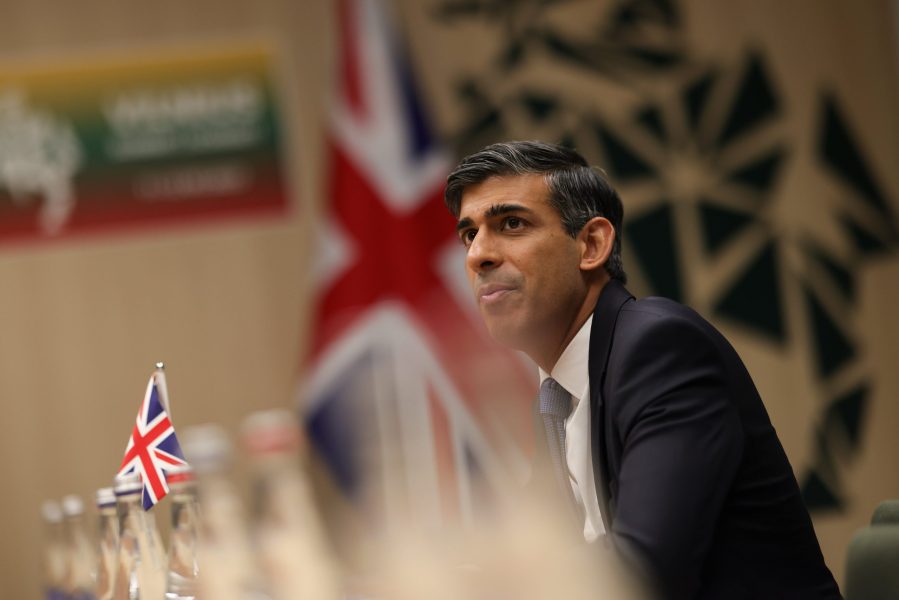
UK by-poll takeaway: 'Competent, weak, lacklustre' Rishi Sunak has his work cut out

The results are in from three bellwether by-elections, from disparate corners of England, and while it may not be the nightmare triple defeat that Prime Minister Rishi Sunak had expected, it is still grim news and certainly a wake-up call for him and his party.
Seen as all-important indicators of what is likely to happen in the general election next year, all three seats were being defended by Sunak’s Conservative party and it was predicted that the Tories would lose all three. Ironically, it was the seat vacated by the disgraced former Prime Minister Boris Johnson that saved Sunak from the 3-0 defeat.
Also read: There is huge potential and we want a truly ambitious trade deal with India: Rishi Sunak
Uxbridge and South Ruislip in the outer suburbs of west London, which now has a fairly large affluent South Asian population, has always been a Conservative stronghold sending a Tory to Parliament for the last 50 years. Johnson first became its MP in 2015 winning by a majority of 10,695 out of an electorate of around 70,000. He won in 2017 and again in 2019 but with a smaller majority – 7,210 votes. Thanks to the Privileges Committee finding him guilty of lying to Parliament about the parties held in 10 Downing Street during the country’s Covid-19 lockdown, Johnson was forced to resign causing a by-election.
Ulez policy
The Tories came very close to losing Uxbridge and South Ruislip, but held on to it by the skin of their teeth with a margin of just 495 votes. Interestingly, the Indian-origin Prime Minister’s face was saved by the Pakistani-origin London Mayor Sadiq Khan’s decision to extend the Ultra Low Emission Zone (Ulez) to outer London, the opposition to which seemed to have brought out all the staunch Tory voters in the constituency.
Also read: UK visa to become dearer; here’s how much you have to shell out extra
Ulez is a policy to improve London’s air quality and tackle climate change, which was actually announced by Johnson when he was London’s mayor in 2015. Drivers are made to pay £12.50 (Rs 1,250) per day if they want to enter central London with vehicles that do not meet emission standards – this generally means diesel vehicles that are more than seven years old or petrol vehicles that are more than 17 years old. From 29 August this year, the Ulez will be expanded to cover all of Greater London which includes the outer suburbs.
Labour’s shocking failure to win the Uxbridge and South Ruislip by-election has been blamed on the Ulez voter backlash, and the party leader Sir Keir Starmer has accepted that he may have to urge his colleague, Khan, to rethink the expansion as changing cars is an added expense that Londoners can ill afford during the current cost of living crisis. The Labour leader realises that while he is on track to becoming the next prime minister, the Ulez extension could become a thorn in his side and lose the party some vital seats in London in the General election.
Sunak on the other hand is grasping at the Uxbridge and South Ruislip win to show that while the Conservatives are down, they are certainly not out. He is paying no attention to the results of the other two by-elections in which the Tories were dramatically wiped out.
Labour were able to wrest the Selby and South Ainsty seat in Yorkshire in north England by overturning a massive majority of 20,317 that the Tories had got in the 2019 election. The Conservatives believed it was a safe seat and therefore salvageable, particularly as it was 237th on Labour’s target list, hence were shocked by the massive turn around. At just 25 years old, Labour’s Keir Mather became the youngest MP in Parliament. This was a true blue Conservative stronghold and Labour’s spectacular win in this seat has sent shivers down the spine of other Tory MPs who have won by smaller margins.
It is not just the Labour party which is worrying Sunak. In the Tory ‘Blue Wall’ of South West England, the Liberal Democrats (Lib-Dems) beat the Conservative candidate in Somerton and Frome, demolishing a majority of 19,213 to lead by 11,008 votes. Signs of a potential recovery for the Lib-Dems in the South-West, where they had a strong presence prior to their 2015 wipe out, would further narrow any path to re-election for Sunak.
Sunak considered disastrously weak
In fact, the collapse in support for Labour in Somerton and Frome – Labour lost its deposit – shows the willingness of Labour supporters to vote tactically, i.e. vote for Lib-Dems if they have a better chance of winning. This was also seen among Lib-Dems voters in Selby and South Ainsty where Labour won and Lib-Dems lost their deposit. If this trend continues then the Tories may see a storm of tactical voting in the General election by anti-Conservative voters who are determined to see the party out of power.
Sunak has been telling his party that mid-term by-elections are “always difficult”, hoping to assuage feelings of despair among sitting MPs who are seeing their future fate reflected in the by-election results. There has already been a spate of sitting Conservative MPs who have said they will not be standing in the next. However, the low voter turnouts in Conservative strongholds have made matters worse, suggesting that many previously loyal Tories are too unhappy to vote at all.
Sunak has his work cut out to turn his and his party’s fate around in just over a year. While he is seen by his own party supporters as reassuringly competent, he is also considered disastrously weak and a bit lacklustre after the flamboyant Johnson. If these by-elections are any indication of what will happen in the general election, then Sunak could preside over the worst drubbing ever received by the Conservatives.


